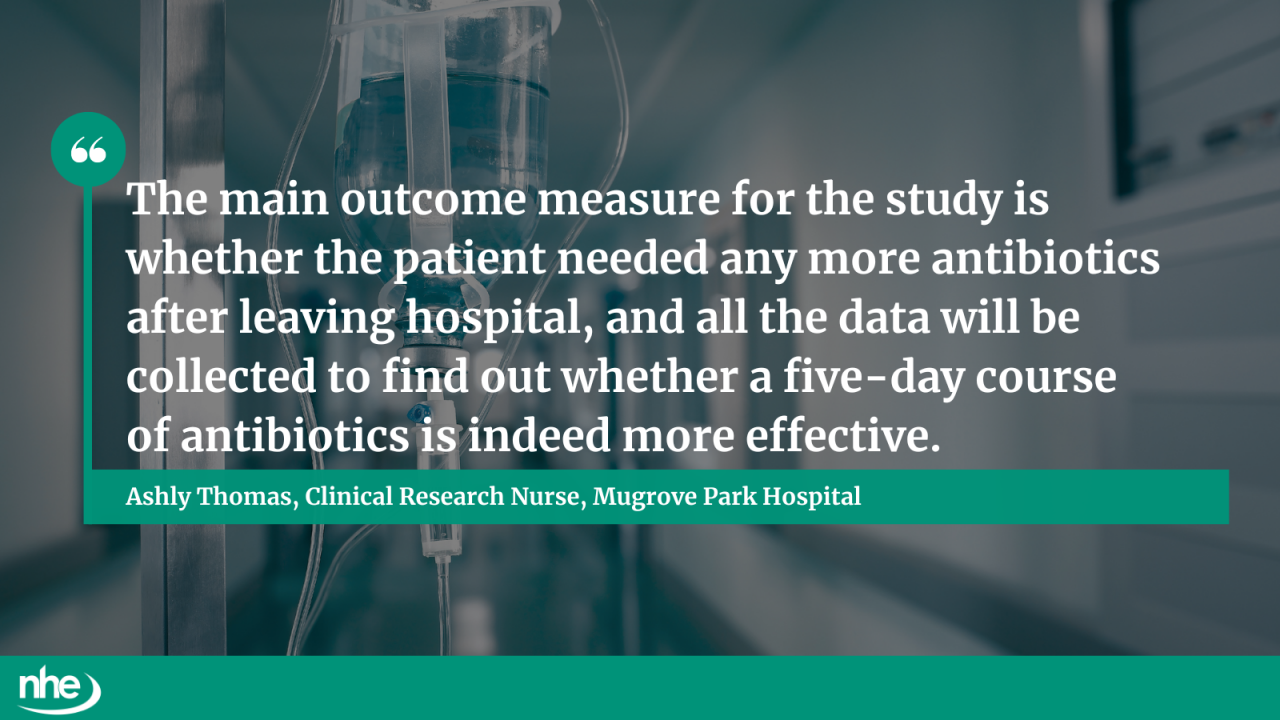Patients in Somerset’s critical care units are playing a vital role in a major national study that could transform how sepsis is treated across the NHS.
The SHORTER study, led by the National Institute for Health and Care Research, is investigating whether a shorter course of antibiotics could safely and effectively treat sepsis.
The study is being conducted at Musgrove Park Hospital and Yeovil Hospital, where patients with confirmed or suspected sepsis are receiving care in critical care units. Researchers are comparing the current standard duration of antibiotic treatment with a shorter five-day course.
Sepsis, sometimes referred to as septicaemia or blood poisoning, occurs when the body’s immune system overreacts to an infection, causing damage to its own organs and tissues. While antibiotics are essential for treatment, their overuse can lead to side effects and antibiotic resistance.
Ashly Thomas, Clinical Research Nurse at Musgrove Park Hospital, said:
“We often tend to see patients diagnosed with sepsis in our critical care units, but we don’t necessarily know where the sepsis is coming from.
“Treatments for sepsis can vary, and our microbiology colleagues meet daily with our critical care team to decide the course of antibiotics for each individual patient.
“Sometimes a patient may be prescribed a longer course of antibiotics, and this can cause a resistance, as well as side effects.
“The SHORTER study splits patients into two groups – one that gets the standard level of care, and one that gets the additional interventions, where their course of antibiotics will be shortened to just five days, with the aim of minimising the antibiotic resistance.
“The main outcome measure for the study is whether the patient needed any more antibiotics after leaving hospital, and all the data will be collected to find out whether a five-day course of antibiotics is indeed more effective.”

The SHORTER study aims to answer a crucial question: how long should antibiotics be given to treat sepsis effectively without causing harm? Finding the right balance could reduce side effects, preserve antibiotic effectiveness, and improve patient outcomes.
By participating in this research, Somerset’s hospitals are contributing to a national effort to improve care for thousands of patients. The findings could lead to updated national guidelines and a more personalised approach to sepsis treatment in the future.
Image credit: iStock



















